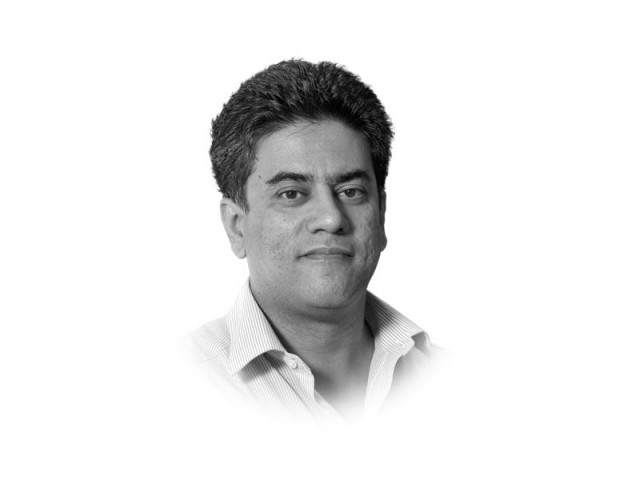In the line of fire
While our media is possibly the freest in the Muslim world, it is also one of the most targeted the world over.

The writer is Editor of The Express Tribune
Two people were injured in the firing. One was a guard who was stationed at the main gate of the office. The other victim, a lady from our marketing department. The condition of the guard is still not out of danger. We pray for his recovery.
Attacks on the media are nothing new in Pakistan. We are one of the most dangerous countries to work in if journalism is our profession. However what distinguished this attack from others was the brazen manner in which it was conducted.
At a staff meeting the same day, a number of suggestions were floated. Shaken by the events of the day, some suggested tighter security procedures for those visiting the building, others talked about blocking the road in front of our office, even placing snipers on rooftops.
But this is not the solution. As journalists, we cannot barricade ourselves because the nature of our work does not permit this. It would be similar to a reporter being accompanied by a bodyguard. This cannot work.
As journalists, the dangers we face are many. As we look for truth and highlight injustice, we are exposing ourselves to forces that sometimes fight back. In the past, we have seen journalists being attacked, kidnapped, tortured and murdered. In some instances, family members have not been spared either. But we continue to fight on.
In many of the workshops I have conducted for journalists all around the country, eventually the discussion leads to why we have chosen this profession in the first place. And in most instances it is neither fame nor fortune which usually evade us. It is a passion to tell the story, no matter what.
Possibly our bravest journalists are those we do not even see often. These are the district correspondents who work in far off places, usually in isolation, and with little in terms of facilities or compensation. And yet they highlight day in and day out the injustices that surround them. The stories of police brutalities, of high handedness by landlords, of killings and beheadings by militants.
At the Hyderabad Press Club, one hears daily the stories of how landlords torture journalists. Our fellow scribes are hung upside down, beaten blue, have their heads and eyebrows shaved as punishment. And yet they keep on writing.
At the Peshawar Press Club, there is a corner dedicated to Abul Hasan Jafri, who was killed by sectarian militants. He is not alone. Journalists will tell you stories of colleagues killed in suicide attacks and targeted shootings. And yet there is no doom and gloom at the club. Work continues as usual. Possibly it is our humour that keeps us sane.
In a meeting after Friday’s attack held by the Council of Pakistan Newspaper Editors (CPNE), the issue of security for journalists once again came up. Another issue, sadly, was also highlighted. How the attack on our premises did not find air time on print space on major media outlets, barring few. Secretary General Aamir Mehmood talked about unity in the profession. Sadly, the ratings war had claimed another victim.
One day earlier, all major channels aired the goings on in Islamabad where a deranged man held his own family hostage so he could get instant fame. And the media obliged. This does not bode well for us.
In the final analysis, one can only lament the state of working journalists in Pakistan. While our media is possibly the freest in the Muslim world, we are also one of the most targeted as a profession the world over. Does freedom come at a cost for the media? And what is the role of the state in all this. Questions that we must ponder on.
Published in The Express Tribune, August 19th, 2013.
Like Opinion & Editorial on Facebook, follow @ETOpEd on Twitter to receive all updates on all our daily pieces.













COMMENTS
Comments are moderated and generally will be posted if they are on-topic and not abusive.
For more information, please see our Comments FAQ